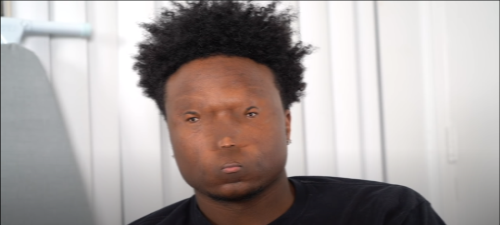Lorem ipsum dolor sit amet, consectetur adipiscing elit, sed do eiusmod tempor incididunt ut labore et dolore magna aliqua. Ut enim ad minim veniam, quis nostrud exercitation ullamco laboris nisi ut aliquip ex ea commodo consequat. Duis aute irure dolor in reprehenderit in voluptate velit esse cillum dolore eu fugiat nulla pariatur. Excepteur sint occaecat cupidatat non proident, sunt in culpa qui officia deserunt mollit anim id est laborum.
Just recipes, no Javashit, no trackers, loads instantly.
The search field uses javascript
But not Javashit :p
Holy shit. This website is great. Thanks.
Does something similar exist in metric? It’s a chore to translate every item.
When starting to cook on my own, I always found it very stressful, because I felt you had to do so many things in parallel and then you look away for too long at the wrong time and something burns.
What helped me is reading the whole recipe very carefully and then prepare everything before actually starting to cook. Many recipes tell you something like “while x simmers, cut y / prepare z”. That’s fine, when you have developed a feeling for how long things take, but as a beginner, it’s better to do everything sequentially. It takes longer that way, but it makes it much less stressful and overwhelming.
YouTube
It may sound meaningless, but the best way to learn to cook is to cook. Learning by doing, that is the way.
Lots of people are recommending YouTube for learning recipes. That’s great advice, but carefully vet what channels you view. Lot’s of creators are interested in views, not education. Those recipes often gloss over important steps or are altogether fake. Avoid big personalities who make gimmicky dishes with exotic ingredients.
I can recommend Chef John, Kenji Lopez-Alt, Ethan Chlebowski, and Helen Rennie.
Don’t forget the godfather of educational cooking shows - Alton Brown
if you’re looking to get into BBQ, then Chef Tom from All Things BBQ (atbbq) and Bradly Robinson (Chudds BBQ) are some of the finest BBQ tutorials on youtube.
I second chef John. I love Kenji too, but his videos are not polished enough to be good for beginners. John provides all the detail you need in an easy to follow fashion which is great for beginners. His channel is called Food wishes for anyone looking for him since chef John might be too vague.
Not familiar with the others but if they’re mentioned in the same breath as them then I’ll definitely want to check them out!
In addition to what others have said already: make peace with the fact that you WILL make mistakes, that the first few tries WILL look weird and that you WILL forget an allegedly important step. This is just part of the learning courve and happened to literally everyone who ever learned to make meals in the history of cooking, so do not compare the first ever flattened sushi roll you made with something a master chef with 30+ years of experience is able to do or the heavily photoshopped pictures on food blogs.
You will learn from those mistakes, and you will gain more experience over time. Small progress is still progress.
Also, it can help to only make PART of a recipe yourself when you’re still a bit unsure how all of it works, like for example buying premade pizza dough and only add the sauce and toppings yourself, or buying premade pie dough and only make the filling. One step at a time.
Didn’t bother learning to cook until my mid 20s. You will be a disaster chef before your a master chef but sick with it and always have cereal on standby!
Start out with the basics: if you like pasta, try a basic tomato sauce recipe. If you like eggs, try an omelette with some veg. Figure out what you like and use that to keep you interested and growing your skills.
You will learn as you go on how to prepare/cut up different vegetables. YouTube is a great resource.
The more you do, the more confident you will become. Watching YouTube videos on cooking is no substitute for time in the kitchen cooking though!
You will cremate food, undercook food, over season, under season, ruin pans, smash dishes, have food weld itself into oven trays, laugh, and cry - and you’ll be all the better cook for it.
Good luck!
have cereal on standby!
And the number of a reliable pizza joint. You get tired of cereal.
No matter how you learn, remember that you will mess up a lot and don’t let that discourage you. Just try to learn from it and remember it for next time.
We used Hello Fresh. Both my partner and I had basic cooking skills, but were not very good cooks. He was also a very picky eater. Hello Fresh reduced the overwhelming amount of recipes in the world down to a more reasonable number to choose from. As we kept going, we started to see the same techniques, like reduction sauces, happen in new configurations and we started to understand how they work, not just follow the instructions. It also helped my partner overcome a lot of his pickiness by being in control of what recipes we had each week, allowing him to explore new ingredients when he felt comfortable.
While maybe not super cost friendly, I second the meal box angle. I wasn’t bad at cooking, but was definitely super slow with knife skills, not comfortable with some stovetop methods of cooking, etc. We used Hello fresh and Plated (before they went out of business), and that really springboarded us into feeling like we could cook. Haven’t ordered any meal boxes in like 5 years now, and make homemade dinners 4+ times a week.
I started with one recipe: split pea soup. I got this recipe from a coworker, followed the instructions exactly and started with a success. This made me want to try other things, and I got turned onto Good Eats with Alton Brown, easily the most entertaining and informative cooking show.
Then I just started collecting and trying recipes. I eventually got enough experience to try modifying recipes and toying around with ideas.
Especially at the start, recipes are your friend. Try a broad array of them, follow them exactly, and get the experience. Also, use tools. Yes, people can punch a steak to see if it’s about done, but that will never beat a thermometer.
If you’re into baking, avoid recipes that don’t use weight as a measure of ingredients. Those recipes get different results every time.
These are the best tips I have for starting out. As you get experience, discard the ones that no longer apply.
of the websites that I used to learn how to cook some fifteen, twenty years ago, serious eats is still pretty reliable. I like their articles - they tell you why food cooks the way it does. I learned to cook on a basic red pasta sauce what’s been going around the family for generations so I’d recommend looking at their italian and starting there.
Buy a cookbook and just start making the things that look good. It comes with practice.
Start simple. Like pasta. You boil water, add pasta, set a timer, stir. Drain the water when the timer goes off, but taste it first to make sure. Boom. You cooked pasta.
Beyond that, I would say that you have to make sure you read the recipe to completion, at least once, before you start cooking. Don’t have the recipe ready, and start cooking without having read the whole thing.
Then break it down. Get all your prep work done before you turn on the heat. Have stations for different processes, and have any utensils & bowls you’re going to need, during cooking, ready to go.
Have all the things you’re adding on the side of your weak arm, while your dominant arm stirs, and have all the things lined up in order, so you don’t have to think beyond “grab closest thing & dump.”
Get as much of the thinking done before you turn on the heat, and have everything ready to go, lined up, and sorted out. Then you’ll be able to fully focus on the cooking, not getting things ready at the last minute.
deleted by creator












